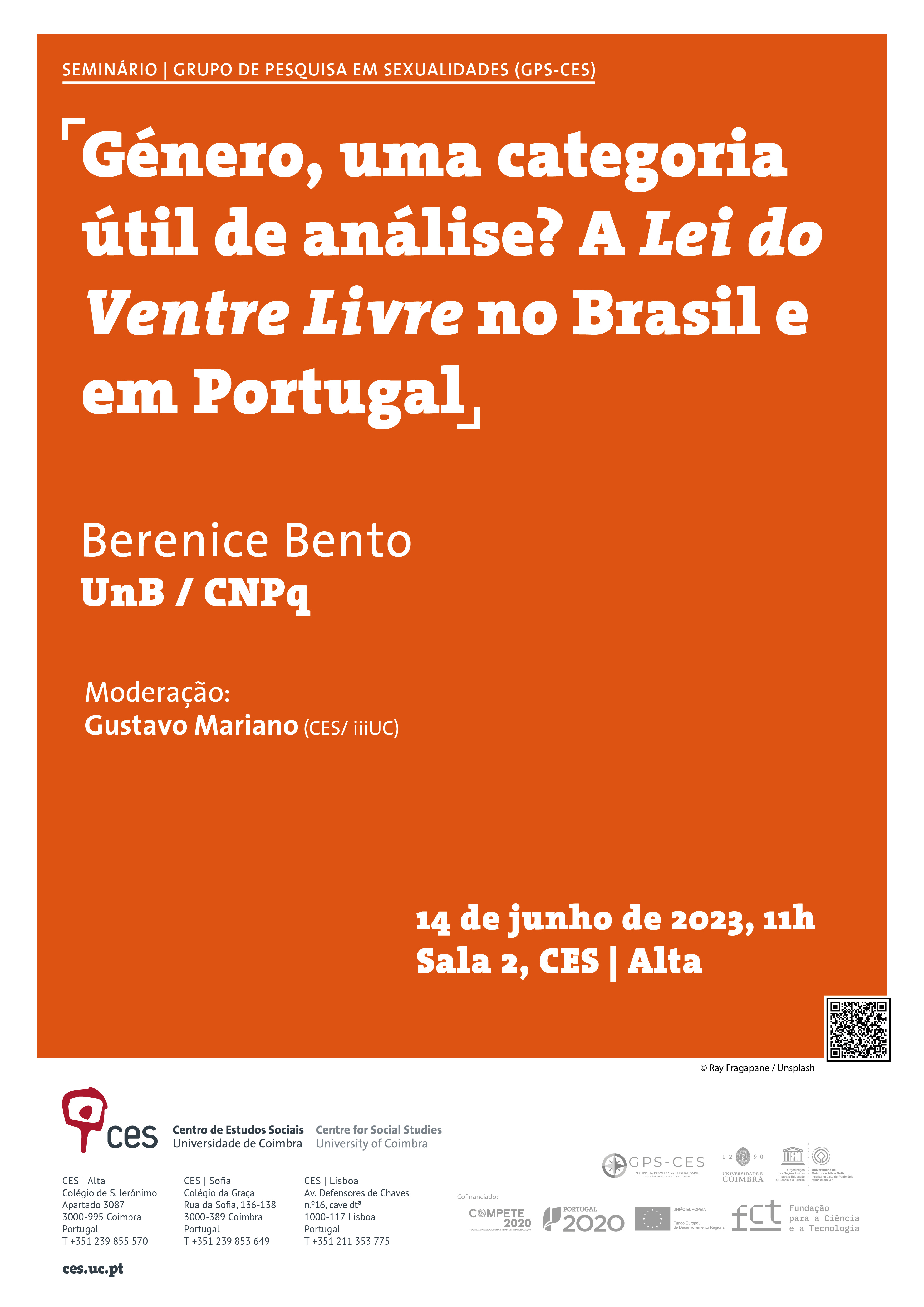GPS - Research Group on Sexualities
Seminar
Gender, a useful category of analysis? The Free Womb Law in Brazil and Portugal
Berenice Bento (UnB / CNPq)
June 14, 2023, 11h00
Room 1, CES | Alta
Moderator: Gustavo Mariano (CES/ iiiUC)
About
Between the months of May and September 1871, for the first time in the history of Brazil, parliament discussed a proposal for the indirect abolition of slavery. The proposal, forwarded by Emperor Pedro II, established that the sons and daughters of enslaved black women born in the Empire, as of the date of the law's promulgation, would be free. This proposal provoked intense debate in parliament. The pioneering experience of the Kingdom of Portugal and the Algarves was repeatedly mentioned by those parliamentarians who defended the proposal. The royal Charter that was published in Portugal on January 16, 1773, granted freedom to 1) the children of enslaved women born after that date; 2) enslaved persons of the third generation - those whose grandmothers and mothers had been captives - born after that date; 3) it also ordered the liberation of those whose great-grandmothers had been slaves. Both the Charter and the law passed in Brazil (law 2.040, of 28/09/1871, known as the Free Womb Law), break the hereditary condition of slavery (Roman principle that defined that “birth followed the womb”).
The aim of the seminar will be to present some of the results of the research I conducted in Brazil and Portugal, which had the analysis of the Annals of the Brazilian Congress and the Charter as analytical corpus. The focus of my presentation during the seminar will be the problematisation of the scope of interpretations that equivocally confer to enslaved black women the belonging to the female gender. What an apparently shared biological condition offered (reproductive capacity), the racial condition took away.
Bio note
Berenice Bento is an associate professor at the Department of Sociology of the UnB, a CNPq 1C researcher, and currently a visiting researcher at CES. She conducts research on gender, sexuality, queer theory, human rights and anti-colonial struggles. The thematic focuses of her research are: the transsexual and transvestite existences, State violence, feminist struggles in the context of anti-colonial struggle (Palestine and Western Sahara). Her research dialogues with the theoretical contributions of decolonial studies and queer theory. She has published 10 books and dozens of articles in Brazilian and international academic journals, and regularly contributes articles to alternative media (Cult Magazine, Outras Palavras, Le Monde Diplomatique, among others).
Organisers: Grupo de Pesquisa em Sexualidades (GPS-CES)


